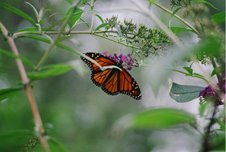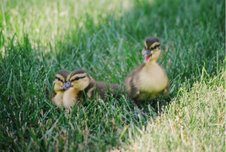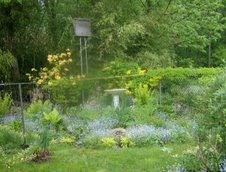Organic Gardening Do’s and Dont’s
Organic Gardening Now
You’ve learned a lot about organic gardening over the course of these lessons. Now I’m going to share my top ten tips that will help you get the most of your garden:
•Do use compost regularly. Composting isn’t something you do once every couple years. You can and should add compost to your garden regularly (especially at the start of the growing season). That’s because your soil tends to use up its nutrients. So even soil that’s nutrient-rich and healthy right now needs compost to stay that way.
•Don’t forget that prevention is the best cure. If you know what your particular plants are most vulnerable to (which depends on the plant species and where you live), then you can prevent pests and diseases before they become a problem. For example, you can plan ahead and use companion planting to repel the common pests in your area.
•Do share your results with your neighbors. No, you don’t want to preach to your friends and neighbors. But you do want to share your results and show them just how lush, green and pest-free an organic garden can be.
If you can persuade your friends to stop using dangerous toxins, that’s great for the earth. And if you can persuade your closest neighbors to stop using toxic chemicals, that’s good for your garden too, because the neighbors aren’t killing your beneficial insects.
•Don’t become impatient. Organic gardening takes time. It takes time to let your compost do its work so that your soil becomes rich and healthy. It also takes time for pest-control methods to work, such as building a beneficial insect population.
Be patient. If you’re coming from a traditional background, you might be tempted to just dump synthetic fertilizer or toxic chemicals on your plants to get results quicker. But that will only set you back weeks if not months (or an entire growing season) if you wish to do things naturally again.
•Do use cover crops. Some organic gardeners – even those with small plots – plant a fast-growing cover crop such as buckwheat. About three or four weeks before you’re ready to plant, mow the buckwheat and then work it into the soil. Now you have a natural compost working to add nutrients to the soil!
•Do take care of problems when you first notice them. If you see a leaf turning yellow, a white mildew starting to appear, black spots or you see pests, take care of the problem right away… because the longer you wait, the harder it will be to get it under control.
•Don’t chase away other allies like frogs and lizards. You already know that birds and certain insects are your allies. But remember that critters like frogs and lizards are too, as they eat a lot of insects.
•Do use collars on your vulnerable plants. If you have plants that are vulnerable to cutworms, you can use little plastic or cardboard collars at the bottom of the stem to discourage worms from munching on the stem or climbing up on the plant to eat the leaves. For best results, insert them just below the soil level.
•Do use bacillus thuringiensis if leaf eaters are destroying your plants. This is a type of bacteria that you can buy at an organic gardening supplies store, and it prevents caterpillars and similar leaf eaters from digesting property. It’s a great alternative to some of the organic sprays.
•Do hand-pick your pests. If you see pests on your plants, pick them off by hand, as there may only be one or two, or this pest might be the one that the spray missed. Just be sure you know the difference between pests and beneficial insects!
And there you have it: Ten tips every organic gardener ought to know. Good luck with your garden!
Subscribe to:
Post Comments (Atom)




1 comment:
Thanks for posting Do's and Don'ts. I especially like the one on not preaching to neighbors, but teaching by example.
Post a Comment